EV home chargers from Electric Ireland
Get a zappi Home EV charger from just €1,199 which includes €300 SEAI EV home charger grant
Request a callbackGet a zappi Home EV charger from just €1,199 which includes €300 SEAI EV home charger grant
Request a callback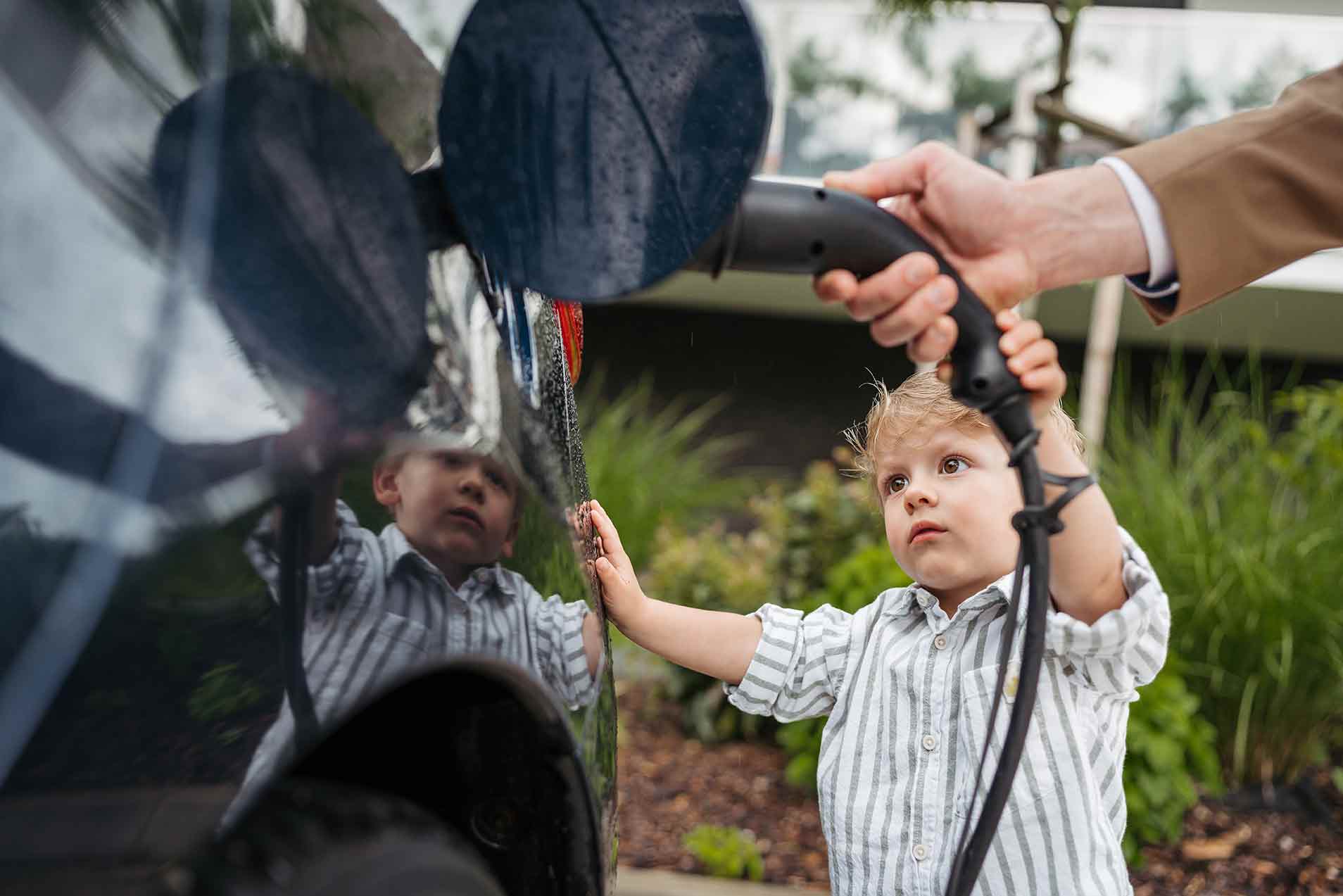
The zappi home EV charger is a top choice for EV owners, known for its solar PV compatibility and 3 year warranty.
Get a SEAI Grant of up to €300 off the purchase and installation of your Zappi home EV charger.
A simple and easy installation with minimum disruption and tested with fully qualified electricians.
Electric Ireland offers EV Home charging that enables the use of renewable energy, such as solar power, for EV charging. Smart charging features allow you to optimise energy use, reduce reliance on fossil fuels, and lower your carbon footprint.
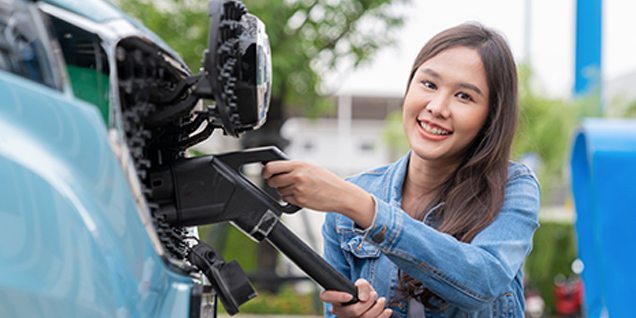
• Convenient charging
• Cheaper Vs Public charging stations
• Take advantage of cheaper night time rates with a smart meter plan
• Easy and efficient installation
• Preserve your EV's battery life

The myenergi zappi EV charger stands out as a top choice among EV chargers, particularly favoured by Irish EV owners. Known for its compatibility with solar PV panels, the zappi charger also offers a 3 year warranty, ensuring peace of mind against unexpected problems.
Get a home charger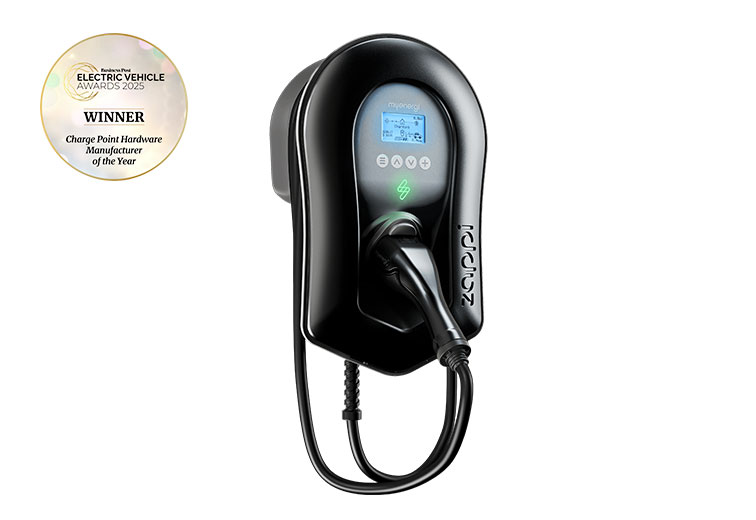
We provide a standard installation, testing, and maintenance of a dedicated power source at your preferred location. Our team consists of fully trained and qualified electricians. Start your EV journey, by completing the form below, and we'll arrange a call for a time that suits you and one of our team will guide you through the whole process. Every installation is certified by us and comes with all the necessary paperwork for grant authorities.
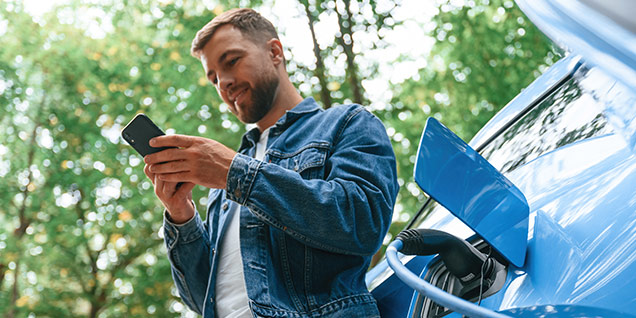
The Electric Vehicle Home Charger Grant is a government-funded program that helps residents and homeowners install EV charge points on their properties. It offers up to €300 towards the purchase and installation of a home charger.
Learn more
Fill in the form and a member of our team will be in touch as soon as possible.
Alternatively, you can contact us directly at 1800 372 333.
Please complete the recaptcha to submit the form.
Data submitted on this form will be used by Electric Ireland and our sub-contractors to call you to discuss the offer with you, you may also be contacted by Electric Ireland for research purposes and/or to discuss other Electric Ireland products.
Data submitted on this form will also be viewed by Electric Ireland to allow for auditing of the process. Please refer to our Privacy Notice.

This means you can get the charger and installation for just €1,199 after the grant is applied.
* Note: Additional costs may be required for electrical upgrades or wiring.
Night Boost EV offers significantly cheaper off-peak charging rates. Charge your EV for half the price at night compared to daytime rates with our time-of-use plan. Home Electric+ Night Boost EV is divided into three convenient time bands:
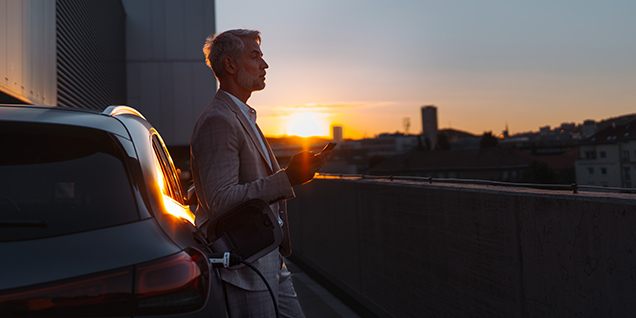
All you need to know about EV Charging plans, Public charger maps, essential EV driver info and understanding EV range.
Find out more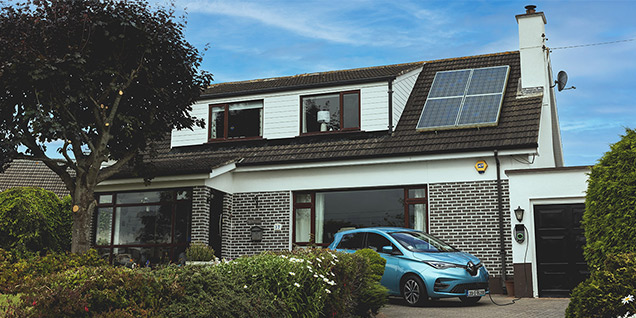
After you register your interest for a home charger, we will call you to schedule a virtual home survey. This involves a 10-minute video call using secure video service on your smartphone. During this call, you can show us where you would like your charger to be located, and we can determine the best method of installation for your home.
The home charger will be installed in the most appropriate location on the outside of your home. A cable will run neatly to an isolator switch which is required by Safe Electric regulations. From the isolator switch, the cable will be neatly routed to your electricity consumer unit (commonly known as fuse board) or to your electricity meter. Our installers use the surface mounted cabling approach allowing for 10m of cabling and drilling through 2 walls. Cost of additional works where required will be added to price of your home charger installation. No works will be carried out without client agreement.
Electric Ireland will install your home charger in 2-3 hours. More complex installations may take longer but you will be advised of this in advance of installation. The installer will complete the install in a safe, professional and tidy manner ensuring the owner or nominated person is brought through the features of the fully connected charger and app. Before leaving your property, the technician will provide you with the relevant documents required by SEAI for grant payment.
Home Charger installations are typically completed in 2-4 weeks. Timelines can vary for a number of reasons such as, if you have not received an SEAI Home Charger grant approval, if remedial electrical works are required or if demand across the market is high. The installation team will always work with you to deliver a suitable installation based on your needs.
Due to the growth of EV sales, we strongly recommend that you request your home charger installation as early as possible to avoid disappointment.
The Electric Vehicle Home Charger Grant is a government funded support scheme assisting residents and homeowners to install an electric vehicle charge point on their property. The scheme provides a grant up to €300 towards the purchase and installation of a home charger unit. The eligibility criteria for the grant is set out below:
The EV must be parked on an off-street parking location associated with the home and the charger must be connected back to the home of the applicant (please refer to your electrician for the best installation approach).
The Meter Point Reference Number (MPRN), which you can find on your electricity bill, will be used to confirm the location of your home.
The property cannot be associated with a previous EV home charge point grant payment. Additionally, it cannot have availed of the free ESB Ecars home charger pre 2018.
Do not commence any work before the start date on your Letter of Offer otherwise this expenditure will be deemed ineligible and you will not receive grant support for it.
You have 6 months from the date on this Letter of Offer, which will be emailed to you, to complete your installation and return your Payment Request Form to SEAI.
Please refer to the SEAI website for full information on the grant: Electric Vehicle Home Charger Grant | SEAI
We strongly recommend you apply for the Home Charger Grant as early as possible. You must have received grant approval (Letter of Offer) before starting any installation work on your home.
You can apply for Home Charger grant online and find more information on seai.ie.
On average applications will be processed for payment on the Home Charger Grant Scheme in approximately 4-6 weeks from the date documents are received into SEAI. These timelines are out of the control of Electric Ireland and may vary based on the number of applications received at a given time. For this reason, we recommend you organise the install of a home charger through us well in advance of the expected delivery of your vehicle.
A dedicated Home Charger is a faster, smarter and safer way of charging your EV at home. The Zappi EV home charger included in this offer will charge up to 3 times faster than a standard 3 pin plug. Speed of charging becomes an important consideration when we want to maximise lower electricity rates during certain times overnight. Home Chargers are specifically designed to handle EV charging electrical loads and all installs must meet strict Electrical Regulations as set by Safe Electric.
Your EV onboard computer continuously calculates your driving range based on the below:
Weather: Range will reduce during colder weather and increase during warmer months
Driving style: As with other vehicles, the smoother and slower you drive the more efficient the car becomes i.e. increases range.
Driving speed: Driving at motorway speeds will use more battery than driving same distance at lower speeds.
Automatic load balancing is included in all installations at no extra cost. This feature monitors the total power that your house is using and will automatically reduce the power to the car at any times that your house requires it. For example, if you are using an electric shower, electric oven or pump for example. This means your house will always get priority and your main fuse will always be protected.
Preconditioning is a clever feature in many new EVs on sale today. While the EV is plugged to your home (whether it is charging or not), it can warm up the interior of your EV using mains electricity. This then means that once you begin driving your EV, you will not waste battery on heating the car. This is especially useful in colder Winter months.